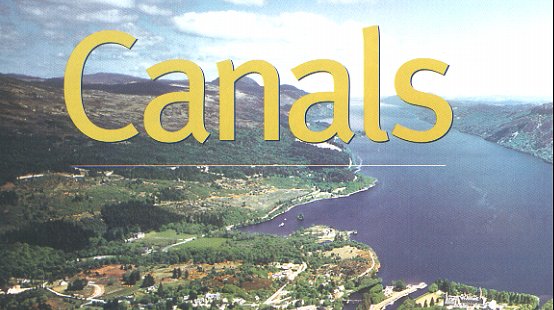
Caledonian Canal
Scotland's Great Glen carves its way from east to west as though Mother Nature had planned
a canal!
The Caledonian Canal was completed after 18
years work in 1822 by Thomas Telford at a cost of £912,000. Over 60 miles it rises to 100
feet above sea level, using three natural lochs for navigation and water supplies.
The locks were mechanised between 1959 - 1968 at
a cost of £195,000 and more recently the main lock flights at Fort Augustus and Banavie
have been restored. All locks and bridges are operated by British Waterways staff.
The majority of traffic is leisure orientated.
Besides being the gateway to Scottish cruising for yachts visiting from continental Europe
the holiday maker can charter a yacht or power cruiser and enjoy a holiday "in
command". Hotel barges offer either activity holidays, or a more relaxed cruise.
Without doubt you will enjoy Britain's most
spectacular and scenic waterway.
Crinan Canal
The Crinan Canal was completed in 1801 as an alternative to voyaging around the
Mull of Kintyre. It now has a major role for leisure craft as a superb, still water,
marina base from which to cruise or race. Crinan is also home to several high quality
yacht charter organisations.
Crinan Canal's customers will find new toilets,
showers and high quality marina berths at strategic spots. Canal licences are available
from one day to annual.
The Millennium
Project
The innovative and visionary Millennium Link will restore the Forth and Clyde, and
Union Canals, to their former glory by 2001. At present Bowling Basin offers a sheltered
haven for those wishing short or long term berthing or wintering ashore, close to Glasgow
and the Clyde. The direct cost will be just over £78.3 million, which is being funded by
a partnership consisting of the Millennium Commission, Scottish Enterprise, five Local
Enterprise Companies, the European Regional Development Fund, British Waterways and seven
riparian councils.
The Boat Safety
Scheme
British Waterways are committed to quality of service and all craft using the
canals are required to comply with the Boat Safety Scheme, this ensuring peace of mind for
all users.
For craft on passage - up to 28 days - insurance
details to confirm third party cover of £1m will be required. Random inspection for gas
and fuel leaks using a portable detector, and of visible electrical systems for signs of
heat damage may also be carried out.
Those wishing to berth for longer periods are
required to have their vessel examined by an approved British Waterways Examiner or
Surveyor. |

